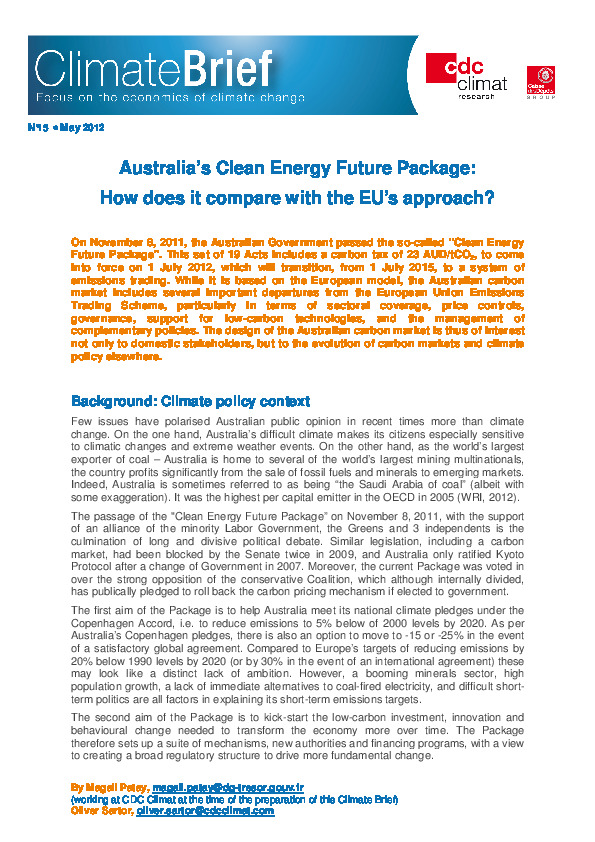Australia’s Clean Energy Future Package: How does it compare with the EU’s approach?
On November 8, 2011, the Australian Government passed the so-called “Clean Energy Future Package”. This set of 19 Acts includes a carbon tax of 23 AUD/tCO2, to come into force on 1 July 2012, which will transition, from 1 July 2015, to a system of emissions trading. While it is based on the European model, the Australian carbon market includes several important departures from the European Union Emissions Trading Scheme, particularly in terms of sectoral coverage, price controls, governance, support for low-carbon technologies, and the management of complementary policies. The design of the Australian carbon market is thus of interest not only to domestic stakeholders, but to the evolution of carbon markets and climate policy elsewhere.
